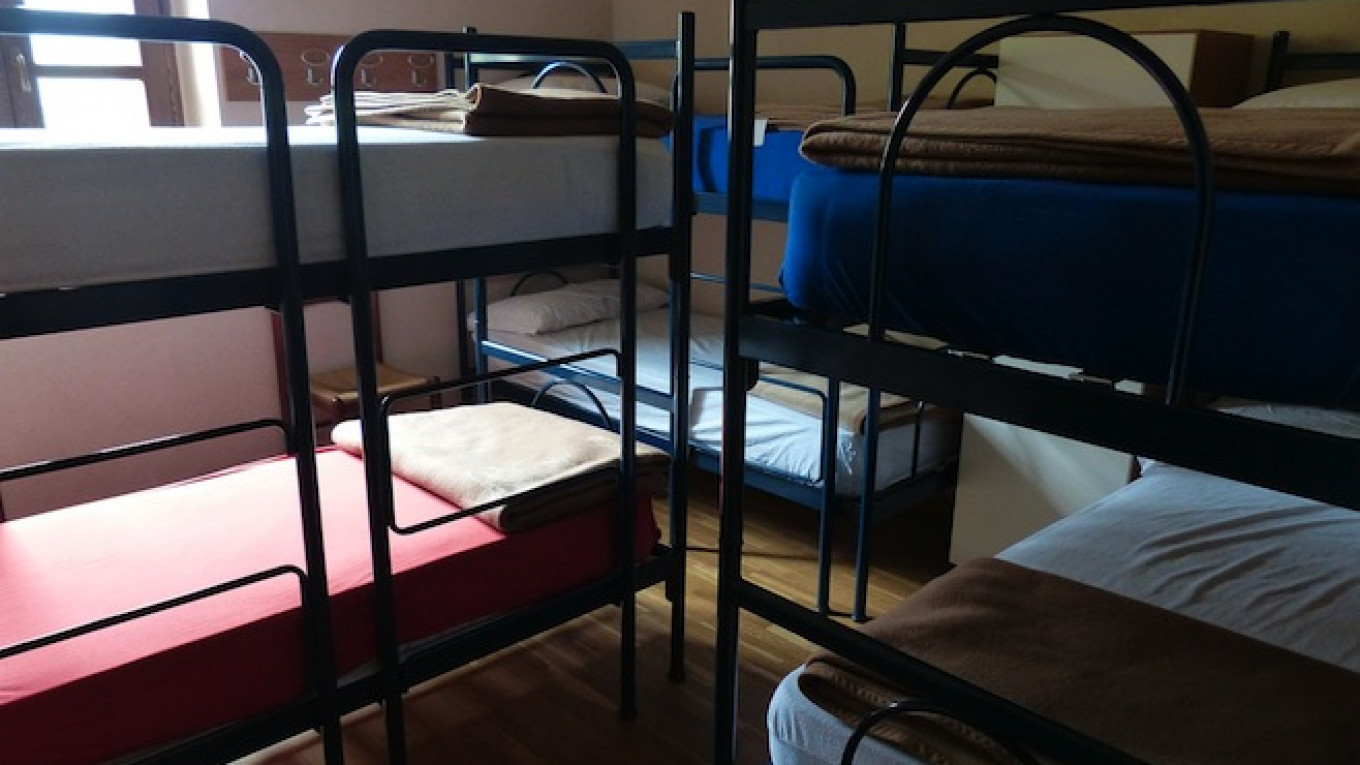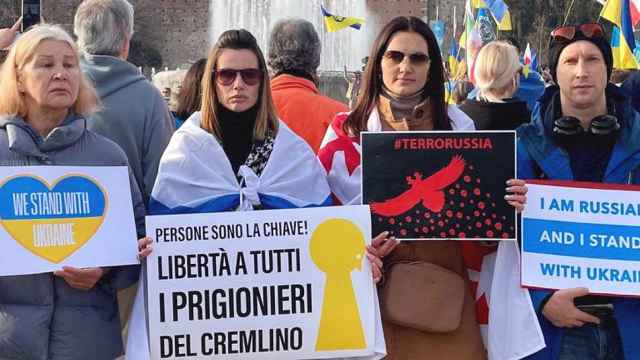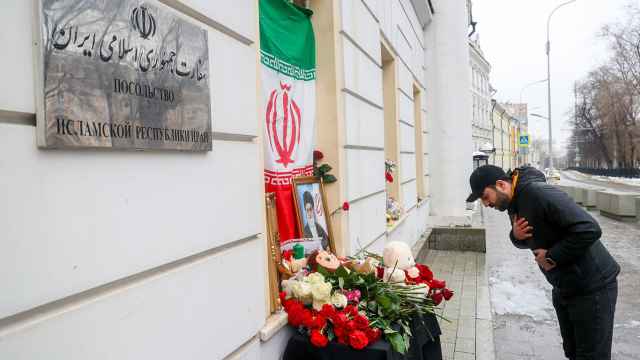Moscow's hostel industry, long stagnant compared to the frenzied markets of cities like London or Berlin, could see major growth as a rise in domestic tourism and changing sentiments boost demand.
With relations with the West at their frostiest since the Cold War and the Russian ruble sharply devalued by the country's economic turmoil, domestic tourism is expected to grow in the double digits this year. As the weak ruble makes travel abroad more expensive, a new generation of modern, well-managed hostels is dispelling a cultural revulsion toward communal living left over from the Soviet era.
But the market is still in its infancy — and unless more is done to support local tourism, the growth of the city's hostel market may simply plateau.
“I think there's a good strong future, but there needs to be a better product and more of it — and one will then develop the next,” said David Jenkins, hotel expert at real estate consultancy Jones Lang LaSalle (JLL).
Good Prospects
Famously expensive, Moscow should be ripe for a hostels boom. The vast majority of accommodation options in the city are either extravagantly priced five-star luxury brands like the Four Seasons Moscow, where rooms start at 31,000 rubles ($550) per night, or Soviet-era behemoths that provide cheaper digs but often with a steep downgrade in comfort.
“We see a lot of potential in hostels because they offer the opportunity to live in the historical center for a reasonable price,” Sergei Korneyev, deputy head of the Federal Tourism Agency, told The Moscow Times.
Cheap beds are also needed for the hundreds of thousands of tourists expected to come for an array of major upcoming sports events — Russia will host the Ice Hockey World Championship next year, and the football World Cup in 2018.
With Russia's economy heading toward recession under pressure from low oil prices and Western sanctions over the Ukraine crisis, fewer people have the cash necessary to take vacations abroad. Demand for vacations in Russia grew up to 30 percent last year, Sergei Romashkin, CEO of tour operator Delfin, told The Moscow Times earlier this year.
Demand for external tourism, meanwhile, is plummeting — the number of Russians tourists traveling abroad fell by 40 percent to 1.89 million people in the first quarter of this year, the Federal Tourism Agency said in a statement Monday.
Changing Sentiments
For now, Moscow's hostel market is small. In the city of over 12 million people, only 1,433 beds were on offer in the first quarter of this year, according to a report by JLL. A search on Booking.com for a bed in early August turned up 341 results classifying themselves as hostels, with the cheapest bed, located around an hour by metro from the Kremlin, available for 200 rubles ($3.50) a night.
Those hostels that do exist hold only 70-80 beds, compared with up to 900-bed hostels available in some Western European cities, according to JLL. Many are essentially converted apartments, and so fit more for traveling students than the school groups or traveling businessmen hosted by hostels in the West.
Start-up costs are fairly low, reflecting the four to five room setup typical of most hostels, with an average initial investment to create a hostel costing just 2.5 million rubles ($45,000), according to Alexander Lavrentyev, co-owner of the High Level Hostel, which opened in the fall of last year on the 43rd floor of a skyscraper in the Shanghai-esque Moscow-City business district.
Some young entrepreneurs are beginning to change that though, offering comfortable hostels, which, even if they lack the beds necessary, are run to attract a wealthier clientele.
The High Level Hostel is one of a handful of new hostels exploiting this niche. Its sleek interior and location has so far helped draw in clients likely more accustomed to shelling out hundreds of dollars at downtown establishments. According to their website, a bed in one of their six-bed dorms costs 1,200 rubles ($21) for a night in early August.
“This year we’ve had BMW factory owners from Germany, diplomats from Geneva and oil-company top managers from Western countries,” said co-owner Lavrentyev.
But while foreigners may be comfortable in hostels, for many Russians the idea takes some getting used to. Many associate communal living with life in Soviet-era ***kommunalky***, in which many families lived in one apartment, riven by conflicts for living space and drunk neighbors.
But the new breed of hostel owners are seeing growing numbers of Russian visitors, as travel abroad, higher-quality hostels, and more affordable prices rehabilitate the market.
“In the last three years the mentality in Russia has changed and people are not afraid to be killed or robbed in hostels anymore,” Yevgeny Nasonov, who co-owns five hostels in Moscow, told The Moscow Times.
Better service is also helping drive out old stereotypes. After traveling around the world for five years, Robert Prikhodko, commercial director of the recently opened Vagabond Hostel, knew that his beds had to be comfortable. “I slept in so many hostels, so I know how important a good mattress is and paid special attention to buy good ones,” he said. Their cheapest accommodation, a bed in an eight-bed dorm, costs 760 rubles ($14) a night.
The Vagabond Hostel was 80 percent filled by Russians in May, when Russians take long vacations to celebrate Labor Day and Victory Day, Prikhodko said.
Old Challenges
But if lingering suspicion of communal living is being overcome, poor tourism infrastructure and danger of draconian legislation could obstruct the development of hostels.
The Federal Tourism Agency's Korneyev may see hostels as a way to boost tourism, but not all are so sanguine. Galina Khovanskaya, chairwoman of Russia's parliamentary housing committee, in April denounced hostel-goers for indulging in "drugs, alcohol and hooliganism," and called for regulation on hostels in apartment buildings, newspaper Vedomosti reported.
Prikhodko, whose Vagabond hostel is located in an apartment building, had to convince the owners of neighboring apartments that the hostel would not be dirty and noisy before gaining their permission to open. Vagabond turns away drunks and does its best to keep its area tidy to maintain good relations, but not every hostel will be welcomed by residents.
The biggest problem is even older — Russia's vast, undeveloped territory. Hostels thrive on a culture of travel, and with Russia's top cities often more than a day's train ride away for potential visitors, the country's traveling culture has been stunted, according to JLL's Jenkins.
The economic slump and collapse of the ruble have created an opportunity to build domestic tourism. But if Moscow and its hostels fail to make use the opportunity, travelers will likely begin heading straight back to London and Paris the moment they can afford to, Jenkins said.
“There's a lot of things that still have to be done to make internal tourism accessible for everyone,” he said.
Contact the authors at [email protected] and [email protected]
A Message from The Moscow Times:
Dear readers,
We are facing unprecedented challenges. Russia's Prosecutor General's Office has designated The Moscow Times as an "undesirable" organization, criminalizing our work and putting our staff at risk of prosecution. This follows our earlier unjust labeling as a "foreign agent."
These actions are direct attempts to silence independent journalism in Russia. The authorities claim our work "discredits the decisions of the Russian leadership." We see things differently: we strive to provide accurate, unbiased reporting on Russia.
We, the journalists of The Moscow Times, refuse to be silenced. But to continue our work, we need your help.
Your support, no matter how small, makes a world of difference. If you can, please support us monthly starting from just $2. It's quick to set up, and every contribution makes a significant impact.
By supporting The Moscow Times, you're defending open, independent journalism in the face of repression. Thank you for standing with us.
Remind me later.






